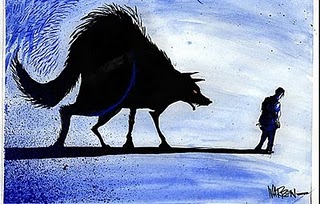Anyone who has suffered from depression knows how debilitating it can be. I was laid low with it from 2009-2013, recognizing it for what it was from previous experience. I’ve sought treatment in the past, with mixed results. Counselling sessions were very helpful, but medication less so. One of the problems with antidepressants is that there’s often a long take-up period before one notices results, and then if things don’t alter much, it’s recommended that a gradual tailing-off of the dosage occurs, rather than just stop taking them. It can all take a long time to find the right chemical for your system.

With the last bout of depression, which started in 2009 and lasted for four years, I chose to use it as an opportunity to confront a few issues about self-belief and what I really wanted from life. I’m a firm believer in the effectiveness of counselling and have trained as a marriage guidance counsellor, also working as a volunteer on Samaritan and Rape Crisis helplines. I previously saw the same counsellor for sessions five years apart, and talking to her was invaluable, and each time I was left with the conclusion that I wasn’t so bad a person after all. I thought that this would be the result if I went through counselling again, so decided instead to work on what was hampering my self-belief.
It took me a few years and was much helped by the resurgence in my creativity which welled-up out of me in 2013. It was almost as if I’d been denying myself the thing that I most wanted to do.
I found several useful online resources, which I recommend to anyone who is feeling crushed by the black dog. And that’s what depression can feel like, for I was weighed down by a lead cloak that made me ache physically and crawl mentally. Current research suggests that there may be a viral cause to depression and anxiety, with the virus residing in the gut, from where it affects muscles and brain activity :
http://www.independent.co.uk/life-style/health-and-families/anxiety-and-depression-caused-by-stress-linked-to-gut-bacteria-living-in-intestines-scientists-find-10422303.html
Moodscope is a test that can be done daily to measure how one is feeling. If you are in the depths of depression, I’d advise you not to do it every day, as it can have a negative impact on morale to see that you’re still at 0%! I do the test about once a month these days and have been at 100% for ages.
https://www.moodscope.com/
American born comedian Ruby Wax, was one of the founders of Black Dog Tribe, which encourages people to talk about their depression.
http://www.sane.org.uk/what_we_do/bdt
Psych Central discusses all sorts of mental health issues, including depression, though I’d caution anyone about self-diagnosing.
http://psychcentral.com/
ADDENDUM
My life has been transformed by writing. My creative resurgence was an irresistible force, with ideas for stories, poems and songs coming to me in chunks. I must admit that I’m a bit surprised to be feeling so positive, as to quote a book title by Richard Farina I previously felt like ‘I’ve been down so long it feels like up to me.’
One of the problems with depression is that it sneaks up on you, and once it has a hold your thinking has been crippled so much that it feels like it’s your well-deserved fate to be this way.
I have no embarrassment in talking about it, especially if my experience helps others. Fortunately, there’s been a greater openness about depression and other mental health problems, as celebrities including Stephen Fry, Ruby Wax, and many actors and sports people have opened up about their struggles.
Exercise certainly helps alleviate depression, though I’m not sure that aching buttocks from my recent 40 mile journey on the unyielding saddle of my bicycle is a fair exchange! I’ve just bought a safety helmet on eBay, perhaps I should search for some titanium cycling pants…
ADDENDUM
Apart from exercising, learning something new is a good way of evading the blues. It all helps to get parts of the brain firing that short-circuit whatever is bringing you down.
Actually, I’m not that keen on depression being referred to as the blues, as that sounds more like an entertaining song. Depression is darker than that – blues becoming purple, then mauve being absorbed by darkness. It makes me think of the Mark Rothko room at the Tate Gallery.


















